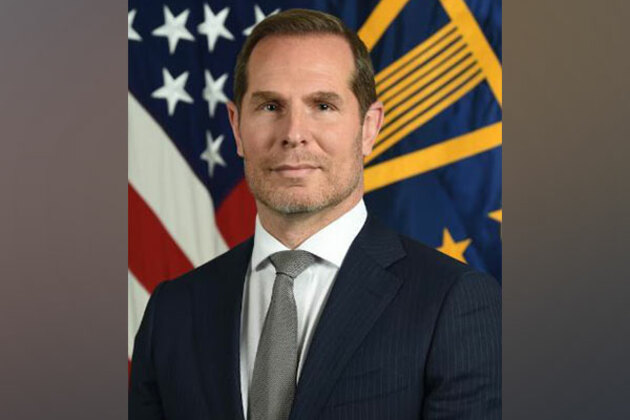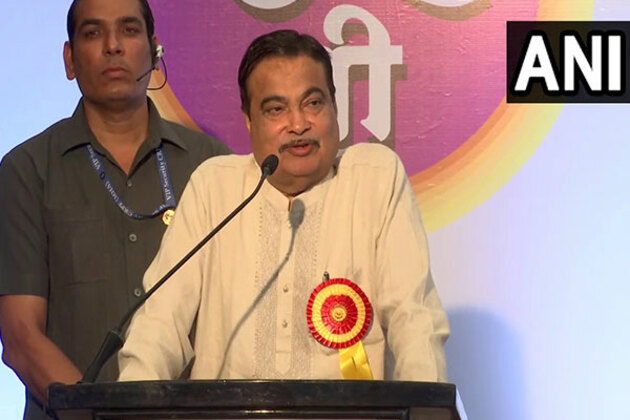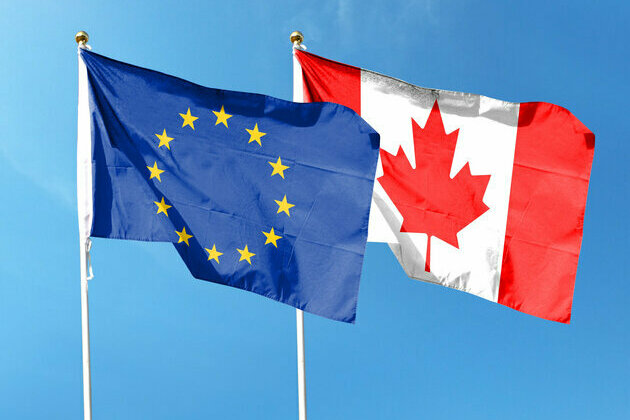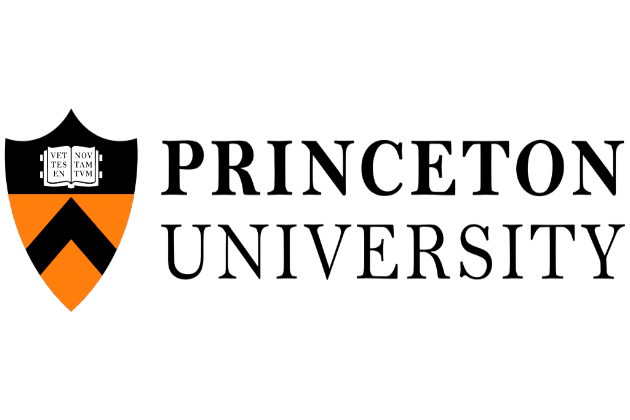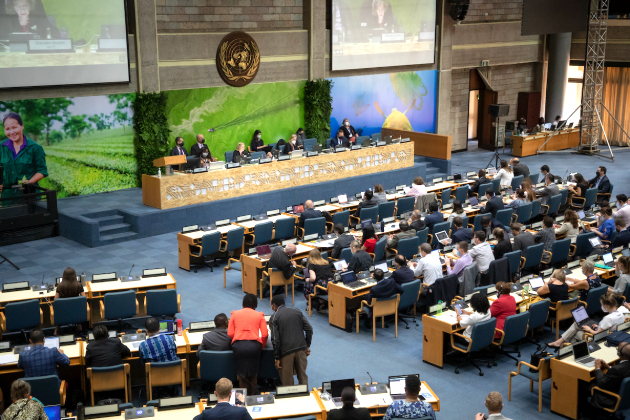Canada is lagging in innovation, and that's a problem for funding the programs we care about
The Conversation
14 Apr 2025, 21:08 GMT+10

As Canadians prepare to vote in another federal election, the country's economy faces a sobering reality. As the Organization for Economic Co-operation and Development (OECD) notes, productivity is stagnating, our innovation performance lags global peers and high-potential startups often fail to scale.
Despite these warning signs, innovation policy remains largely absent from political discourse. Canadians hear a great deal about how political parties are going to spend money, but little about where the money is going to come from.
This is a critical oversight. Canada's enduring productivity gap is more than an economic statistic - it's why the country is struggling to sustain the social programs, such as health care and education, that Canadians value.
If Canadians want to maintain their standard of living, Canada must close that gap through a more deliberate, strategic approach to innovation.
In today's knowledge-based economy, as business executive and innovator Jim Balsillie observes, power flows to countries that own digital data and their "value-added applications" (like apps or platforms) and intellectual property.
Countries like the United States, China and South Korea have embedded innovation into national strategy, investing in sectors like artificial intelligence (AI), clean technology and biotech to drive growth and resilience. Canada, by contrast, has taken a fragmented, reactive approach.
Canada's over-reliance on research and development (R&D) spending and patent counts has failed to translate into commercial success. According to the OECD, Canada ranks among the highest in public R&D investment but among the lowest in innovation outcomes such as productivity growth and technology adoption.
Canada also often conflates research with innovation. While both are vital, innovation is about turning knowledge into use through deployment, adoption, commercialization and scaling. Much of today's transformative innovation, particularly in AI and software, depends on the transfer of tacit knowledge (related to things like user insights, execution experience and expertise in a particular domain) not just codified knowledge (for example, patents, technical drawings and licenses).
Governments struggle with innovation because it defies conventional policymaking:
It requires failure tolerance. Innovation is iterative. But political systems fear failure.
It demands long-term vision. Results may take years, beyond typical electoral cycles.
It's technically complex. Few policymakers have deep expertise in emerging technologies or understand the research and development process.
It's often misunderstood. Funding research is not the same as building innovation capacity or developing innovation processes.
It's hard to quantify. Quantifying innovation outcomes is complex and challenging to measure, making it also difficult to measure return.
As economist and innovation policy expert Mariana Mazzucato argued in The Entrepreneurial State: Debunking Public vs. Private Sector Myths, innovation success depends on bold missions, cross-sector collaboration and a willingness to learn from failure. Canada's current model lacks these ingredients.
To break this cycle, Canada needs a non-partisan national innovation institution - an agency empowered to advise on strategy, evaluate outcomes and embed technical expertise into policy at the federal, provincial and municipal levels.
Models like DARPA from the U.S., Vinnova from Sweden and the Israel Innovation Authority show how long-term, high-impact innovation can be achieved with the right institutional scaffolding and appropriate knowledge.
Canadians have created a number of innovation organizations with national implications, such as the Council of Canadian Academies, the CD Howe Institute, Canada Foundation for Innovation and the Institute for Competitiveness and Prosperity (ICP), which closed in 2019.
Yet none have been national organizations that addressed the broad proposed mandate to explicitly advise governments on technology and policy strategy, evaluate innovation outcomes and embed technical expertise into recommendations.
A non-partisan national innovation institution must:
Track outcomes more than inputs. Innovation success can be measured by a number of project- or industry-specific outcomes, such as productivity, firm growth and export revenue. The ICP proposed measuring the "prosperity gap," comparing innovation performance to peer jurisdictions.
Support long-term strategic objectives, focusing on Canada's strengths in critical areas like AI, clean technology, energy health-care technology, and leveraging expertise and experience in these and other areas.
Embed technology experts alongside health-care and education experts in the decision-making process. Recruit scientists, engineers and entrepreneurs to anticipate technology and market trends, guiding both implementation and policy development.
Differentiate innovation from research. Support both, but recognize the differences and explicitly link innovation to adoption and new use cases.
Promote value capture. Ensure Canadian firms and the country benefit from and retain control of key technologies that enable them to scale domestically.
Recognize the inherent risks in innovation and the potential for failure. Evaluate and build on impact and learn from failure to enhance innovation processes and improve future outcomes.
Align our educational institutions with innovation goals revising programs, creating more flexible learning options and enhancing entrepreneurship so that more research outcomes are commercialized.
These steps aren't hypothetical. They're backed by evidence from countries that have succeeded in turning innovation into sustained economic performance.
Canada's economy is heavily dependent on resource exports and vulnerable to technological disruption. Meanwhile, the global AI and clean tech races are accelerating. Canada is at risk of falling further behind - not just economically, but geopolitically.
But Canada also has strengths: world-class researchers, diverse entrepreneurial talent and global partnerships. What's missing is a cohesive national strategy to harness this potential. Creating a non-partisan innovation institution would be a powerful first step.
If Canadians want to provide revenue for governments decide how to fund education, health care and climate adaptation, they must grow their economy. And to do that, Canada needs smarter innovation policy.
It's time to stop celebrating activity and start rewarding outcomes. Let's build the structures that allow Canadian ingenuity to thrive - not in theory, but in practice.
 Share
Share
 Tweet
Tweet
 Share
Share
 Flip
Flip
 Email
Email
Watch latest videos
Subscribe and Follow
Get a daily dose of Illinois Intelligencer news through our daily email, its complimentary and keeps you fully up to date with world and business news as well.
News RELEASES
Publish news of your business, community or sports group, personnel appointments, major event and more by submitting a news release to Illinois Intelligencer.
More InformationNorth America
SectionFyodor Lukyanov: Heres what Trump really wants from his trade war
The US president believes the EU will obey and he may be right US President Donald Trump wasn't joking. As promised, he has launched...
Pete Marocco, key figure in USAID overhaul, leaves State Department
Washington DC [US], April 14 (ANI): Pete Marocco, who played a key role in overseeing the drastic reduction of foreign aid and the...
"If we want to make our country Vishwaguru then...": Union Minister Nitin Gadkari
Mumbai (Maharashtra) [India], April 14 (ANI): Union Minister of Road and Highways Nitin Gadkari on Monday said that India can become...
Canada is lagging in innovation, and that's a problem for funding the programs we care about
As Canadians prepare to vote in another federal election, the country's economy faces a sobering reality. As the Organization for Economic...
Russian narratives dominate US Zelensky
Trump has previously accused the Ukrainian leader of stalling peace talks Vladimir Zelensky has claimed that Russian narratives are...
EU, Canada sign agreement on passenger name record data
BRUSSELS, 14th April, 2025 (WAM) - The European Union and Canada have signed an agreement on the transfer and use of Passenger Name...
International
SectionLA County offers free lead tests near wildfire burn zones
PASADENA, California: Because many people are worried about dangerous chemicals in smoke, ash, and debris from recent wildfires, Los...
Trump lifts shower pressure limits to protect 'beautiful hair'
WASHINGTON, D.C.: President Donald Trump, who had often complained about weak water pressure in showers, has signed an order to remove...
Apple airlifts iPhones from India to dodge new US tariffs
NEW DELHI, India: Apple has ramped up shipments of iPhones from India to the United States, chartering aircraft to move hundreds of...
US halts $4 million climate grant to Princeton over policy clash
WASHINGTON, D.C.: The U.S. Commerce Department during the week ended about US$4 million in funding to Princeton University for assessing...
Hong Kong social worker jailed after protest retrial
HONG KONG: A Hong Kong social worker has been handed a prison sentence of nearly four years after a retrial linked to the 2019 pro-democracy...
US pulls out of shipping decarbonisation talks in London
LONDON, UK: The United States has pulled out of international talks in London about reducing pollution from ships. These talks are...


